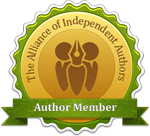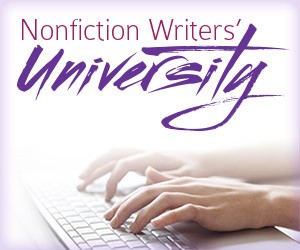
Doubt can crush creativity — the drive to keep creating too — because the more you give away your power to doubt, the more ease with which it can slow your process & thwart your creativity. Take back your power with these techniques.
When the words don’t flow or we find ourselves unsure of everything on the page, the more we question, criticise, struggle or tweak our writing, the harder it is to move forward, much less produce our finest work. If daunted by doubt or caught in criticism, that tension can filter into our writing, depleting the joy and slowing the process, or may even derail us before we begin.
“It seems to me that every really good writer I know is plagued by it,” says author Dani Shapiro. “A writer who is overly confident will not engage in the struggle to get it exactly right on the page — but rather, will assume that she’s getting it right without the struggle. People often confuse confidence with courage. I think it takes tremendous courage to write well — because a writer has to move past the epic fear we all face, and do it anyway.”

Reclaim Your Power
It’s natural to feel a certain unease when you are writing to share your work but persistent doubt can cripple creativity — your drive to keep creating too. “If you give away your power to self-doubt, sooner or later it will start calling the shots,” says writing coach Lauren Sapala. “It will convince you to give up on that first draft, not even attempt to revise the second, and not even think about approaching an agent. If we choose to remain unconscious, we are giving our self-doubt a free pass to run the show.”
Whatever the reasons for your doubt, take back your power with these techniques.
Tools to Liberate Yourself from Doubt
Stop Overthinking [and Edit Later]

“Making writing a big deal tends to make writing difficult. Keeping writing casual tends to keep it possible,” says author and artist, Julia Cameron, who writes much about surrendering to the process and not overthinking your writing, and it’s the same approach for writer’s doubt. If you stall and stop, your writing can also feel disjointed.
“Fiction is an amalgam of art and craft. Craft is an analytic, left-brain exercise. Art, on the hand, is a deeply subconscious, emotional journey. We shouldn’t think too hard about that—at least, not while we’re in the act,” says author of The Art and Craft of Fiction, Victoria Mixon.
“Thinking too hard dries up the creative side of the brain and dams up that subconscious flow of ideas, words, and images.” Creativity comes with far more ease when we write without overthinking, without slowing to pause or question. “Don’t think too much. There’ll be time to think later,” echoes author Dani Shapiro.
When you keep your pen moving and are deep in your creative flow there’s no room for doubt. Even if at first it feels like a rouse, keep writing. You can always edit later. “Remember: Every book gets revised and edited. Whatever you write can be perfected,” says Rochelle Melander, author of ‘Write-a-Thon: Write Your Book in 28 Days and Live to Tell About it‘. “Too many people postpone their writing dreams because of self-doubt. The more you practice, the easier writing will be for you.”
'Making #writing a big deal tends to make writing difficult.' ~ Julia CameronClick To TweetRemember Why You Love Your Art

Remember why you love your art. Your creativity is one of the most sacred things in the world. It’s fluid, it ebbs and flows much like the seasons, weather, and days. Our own internal rhythms fluctuate too, and with them where we are on the confidence—doubt continuum, changing how self-critical we may be.
It’s crucial to reconnect with the why behind your writing, your passion and love for it, even if that also fluctuates. On a ‘good’ writing day, you may be filled to the brim with the joys of writing, other days — when the words refuse to flow quite so succinctly or your well of inspiration runs dry — the internal critic may be louder, doubts more persistent too but remember why you love to write.
Don’t let doubt, the voice of the inner critic or perfectionism spoil your prose or the act of itself.
Even if you are writing, things can become a little too serious. Perhaps your ‘paid’ writing or day job is crowding out your personal writing, and that’s the source of the critical voice. Perfectionism can be doubt in an alternative dress but if you can be passionate and love the good as well as the bad, you will sail through even the most turbulent of writing weathers.
“Love your work,” says Victoria Mixon. “Love every little bit of it you can. Love the paper and pen nibs and keyboard, love the punctuation and vocabulary and syntax, love the alliterations and etymology and patois and Great Vowel Shift of the fifteenth through eighteenth centuries. Hate what really burns you up. Throw yourself, like Camille, across the fainting couch of literary aspirations.”
What’s the Real Risk?

“The question you need to ask yourself is what’s the real risk? You already possess the inner tools and ability to be creative. Doubt can only creep in and mess with you when you put too much pressure and expectation on what you create – what it means, what people will think or say, will it make money – and it starts cracking your foundation of confidence and clarity” says creativity consultant and writer, Katrina Pfannkuch.
Instead of letting doubt control your creativity, be willing to take risks. Embrace the uncertainty that is so intrinsic to the creative process. “Creativity is stepping into the unknown, moving past what’s clear and certain. To create something new from your imagination and heart requires a certain level of vulnerability,” says Katrina Pfannkuch.
“It comes down to your willingness to move past the fear of the unknown and flow with whatever happens. Creative doubt will do it’s best to stop you before you even start, to set up a mindset that convinces you it’s too risky, too ridiculous to turn into something real that matters. And this is the exact moment you need to find ways to make creative doubt your friend.”
Writing Through Doubt

E. L. Doctorow told the Paris Review that he discovers his stories through the act of writing, and creative doubt is best viewed through a similar lens. Being overly concerned with the end result or making unhelpful judgements and criticisms before our work is complete isn’t helpful for us or our writing but in trusting the process, and writing through doubt, our work can evolve and any unease to negate through the act itself.
“Somehow the activity of writing changes everything,” said author Joyce Carol Oates. The paradox is in laying ourselves bare through our writing, can create tension, which may hamper this open process but is an entirely natural part of creativity. Embrace the momentary unease. Write through it with a pre-work free-write to loosen the tension and liberate you from doubt.
“For something new to be born, we need to experience tension,” says writer and creator of Finally Writing, Jackie Johansen. “I like to think of it as a battle that fuels the creative fires. It is one that is powerful and exciting. One that is necessary for bringing your work into the world. When you write through doubt, you come out stronger as a writer and as a person.”
Shift How You Deal With Doubt

“When we resist self-doubt, we give our power to it. We automatically assume that it knows what’s best for us,” says Lauren Sapala. “However, we can shift the way we deal with self-doubt from unconscious resistance to conscious observation. When we move into purely observing, we bring in detachment and give ourselves space to change perspective.”
Engaging with unhelpful thoughts lends them more power and only serves to make you feel worse, while conscious observation and detachment can shift doubt. This following technique is useful for detachment from doubt because it creates a space between you and your thoughts, and in that distance you can choose how to respond, be the observer and shift your perspective.
Try this technique from psychologist Dr Russ Harris, author of ‘The Happiness Trap’:
When you have a repetitive thought or doubt insert the phrase, “I’m having the thought that…” in front of the doubtful, negative thought you are having. So for example, “I can’t do this,” becomes “I’m having the thought that I can’t do this,” or “this is rubbish,” becomes “I am having the thought that this is rubbish.”
This is helpful as you are then able to see it’s a thought — not fact — and in fact a trigger for a whole set of unhelpful emotions which keep you trapped in a negative cycle that hinders your creativity. The thought may still exist but you are less caught up by it, able to detach as you no longer engage with this unhelpful inner dialogue.
Learning From Doubt

An alternative technique to loosen the creatively stifling grip of doubt is to talk to it. Ask why it has shown up now, in this moment, during this project, this work. Use it to your advantage, and learn from it, instead of allowing it to hamper your flow. “Your doubt can become a good quality if you train it. It must become knowing,” said Rainer Maria Rilke in ‘Letters to a Young Poet’.
“Ask it, whenever it wants to spoil something for you, why something is ugly, demand proofs from it, test it, and you will find it perhaps bewildered and embarrassed perhaps also protesting. But don’t give in. Act in this way, attentive and persistent, and instead of being a destroyer, it will become one of your best workers.”
Believe in Yourself [and Act]

“People only work within the confines of how they perceive themselves, and when your self-esteem is low, that perception is usually far from the truth. You won’t be successful until you believe that you are truly worthy of it,” says Stephanix Lennox, coach and creator of The Authorship Program®.
In writing through any imbalances, and using the tools herein, you can relinquish the doubts and insecurities that thwart your progress or hamper your creative goals, and soothe and still the inner turbulence of your emotions too.
“You shouldn’t waste time or be worrying about how others perceive you when you could be out there proving yourself to the world,” adds Stephanie Lennox. “If you’re feeling called to do something, it’s because you’re meant to do it. As soon as you realise this, the curtains will draw back in the theatre and the show will begin.”
You may enjoy this post on Acupressure to Ease Creative Doubt.
Take baby steps. Commit. Keep Going. Be Present.
FEEL FREE TO SHARE THE LOVE ♥
P.S. Sign-up to my newsletter if the mood takes you, Namaste ♥
7 Signs You’re Living Your Life Purpose | Lauren Sapala
Don’t Let Imposter Syndrome get in your Way | Pia Kealey’s Blog
How To Find Your Strength In Times Of Doubt And Fear — The Authorship Program®
A Survival Guide to Self Doubt & Writing Ruts
Creative Risk Taking and How it Relates to Self-Esteem – Creative Katrina
Why We Need to Have Compassion for Our Inner Critic | Kristin Nee




Thanks so much for sharing your wisdom! Doubt is something I have struggled with (and still do often!). I so love these tools and appreciate you featuring Finally Writing in your article. xox
So pleased you enjoyed Jackie, and always a pleasure including your writerly wisdom. ♥ Doubt, I think, isn’t going anywhere. It’s such a huge part of writing for so many. I loved what you said about needing to experience the tension, even embracing it as part of the creative process. So much is liberated through the act itself (even if it’s initially nonsense ;). Thanks for your lovely comment. xo